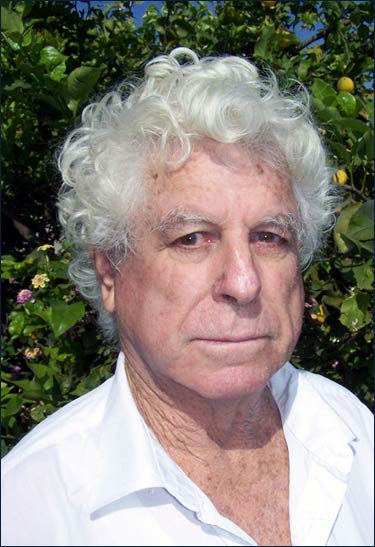By Rivka Borochov
So peachy -- a peach tree that can drink when it’s thirsty! This was the water-conserving dream of an enterprising 79-year-old Israeli peach and grape farmer.
Aware that it was not ideal to water his trees when he thought it was the right time – no matter how educated his guess -- Moshe Tzori invented a tool called
CommonSensor to let the trees, or any plants, decide for themselves.
Plug it into the soil, and the wireless device can measure the amount of water currently available to the plants. The unit is linked wirelessly to a computer-run interface and also to a controller attached to the automated irrigation system. The end result is that the crops drink only when they are actually “thirsty.”
The company started when Tzori retired at age 65. Today his CommonSensor invention is ready to hit the market.
No more guesswork in ag-tech
What happens in intensive agriculture is that the farmer basically puts a finger to the wind and decides when it’s time to water. This approach is fraught with problems, such as wasted water and over-fertilizing, Tzori explains.
CommonSensor would help avoid the problems of over-watering and under-watering so that crops of all kinds can be grown to their full potential, he says.
He is currently looking for distributors around the world to sell CommonSensor in local markets. “This device isn’t just good for countries like Africa. It could really be used anywhere,” he says.
Even for water-rich countries like Canada, the device ––which costs about $1,000 a unit –– could prove beneficial, says Tzori. This is especially true when fertilizer is being mixed into the water medium before it gets to the plant.
Because it was designed to be wireless, just one CommonSensor unit could control the watering in a larger area – say, 15 acres like Tzori’s own farm. If that area has topographic, and therefore soil-wetness, diversity, the grower can plunk another CommonSensor unit into the soil in a different part of the orchard so the trees that are not “heard” by the first one can also get their say on how much water they want to drink.
The data that he’s collecting about plant behavior from using CommonSensor is “really amazing and interesting,” Tzori adds.
An older startup
CommonSensor is not the first device developed in Israel to speak the language of plants and control watering. But it might be the only one invented by an entrepreneur with such a lifetime of hands-on experience behind him.
Becoming an entrepreneur at 65, or around 2001 when Common Sense first began, had some perks.
 Moshe Tzori proves that not all of Israel’s
Moshe Tzori proves that not all of Israel’s
startup entrepreneurs are under 30
Like most Israeli farmers who want to establish two-way conversations between real problems on the farm and Israeli scientists developing technological solutions, Tzori established strong ties between his farm and the research community early on.
“I always wanted to advance my knowledge on the farm,” he says.
Another perk is that by age 65, Tzori was able to bring to the table the matured technical and scientific skills of three of his four sons. The three had studied at the Technion-Israel Institute of Technology. The eldest son helped his dad realize their mutual dream to work the land.
“The firstborn told me that he wanted to continue, like me, in agriculture. And I told him that if you want to give to yourself and advance the business, you need an advanced degree. Go and learn at the Technion,” Tzori told him.
Today, even though the Tzori men are busy with their own ventures, they always have time to talk CommonSensor, says Tzori, now grandfather to 14.
And if the peach trees and grapevines on his farm could talk, they would probably say Le Chaim! -- Hebrew for “To life.”